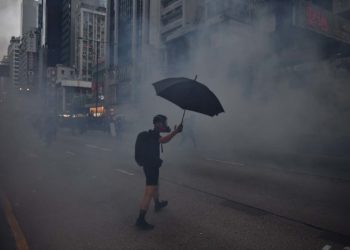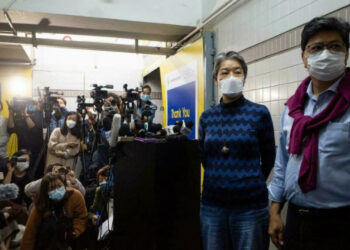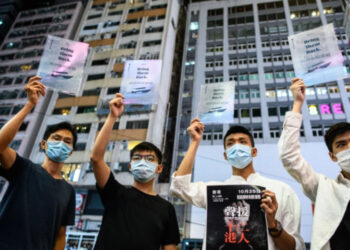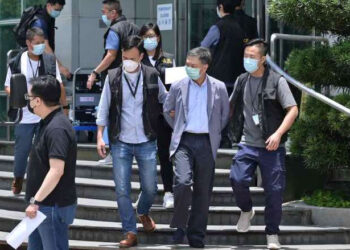Hong Kong has become a “city of fear” where democracy activists are silenced with pre-emptive arrests, a prominent human rights lawyer said Friday as a court denied her bail.
Chow Hang-tung was arrested and charged on Wednesday with inciting others to join a banned protest.
The 36-year-old barrister was first arrested on June 4 — the date that marks Beijing’s 1989 crackdown on pro-democracy demonstrations in Tiananmen Square with troops and tanks.
She was part of the group behind Hong Kong’s annual Tiananmen vigils, and was one of its last remaining members not jailed or facing prosecution.
Police have banned the vigils the last two years, and have accused Chow of encouraging others to join an unlawful gathering on June 4 this year, a charge she denies.
On Friday, at her first court appearance, she was denied bail and remanded in custody. Her next hearing will take place on July 30.
Hong Kong’s courts now commonly deny bail to democracy activists arrested under either a colonial-era sedition law or Beijing’s new national security law.
But it is unusual for bail to be denied for unlawful assembly offences.
Shortly before bail was rejected, Chow’s Facebook page published a lengthy statement in which she decried the current state of political freedoms in Hong Kong.
“Hong Kong has become a city of fear, with panic and many people leaving,” Chow wrote.
“The government has increasingly deemed those who raise questions and opinions as enemies, demonized dissent with divisive methods and used police brutality and force to suppress democratic voices,” she added.
“In the new era of national security and stability, every major anniversary sees preventive arrests and demonstrative arrests.”
China has overseen a sweeping crackdown on dissent in Hong Kong after the financial hub was convulsed by months of huge and often violent pro-democracy protests.
Many of the city’s most prominent democracy activists are either jailed, being prosecuted or in overseas exile.
The powerful new security law imposed on the city a year ago has criminalized much dissent and transformed the semi-autonomous city’s political and legal landscape.
China says the law was needed to restore stability.
Critics, including many Western nations, say China has effectively shredded its “One country, two systems” promise that Hong Kong could maintain certain freedoms and autonomy after its 1997 handover by Britain.
























